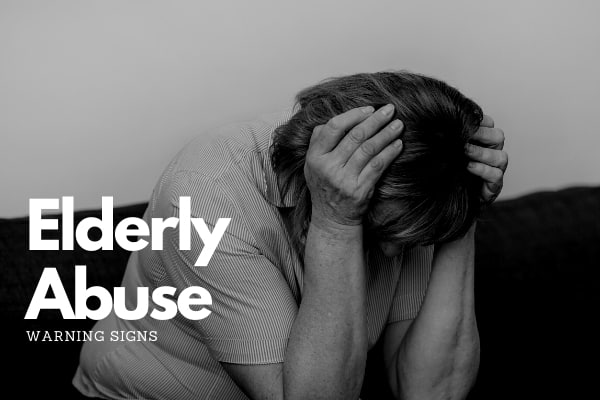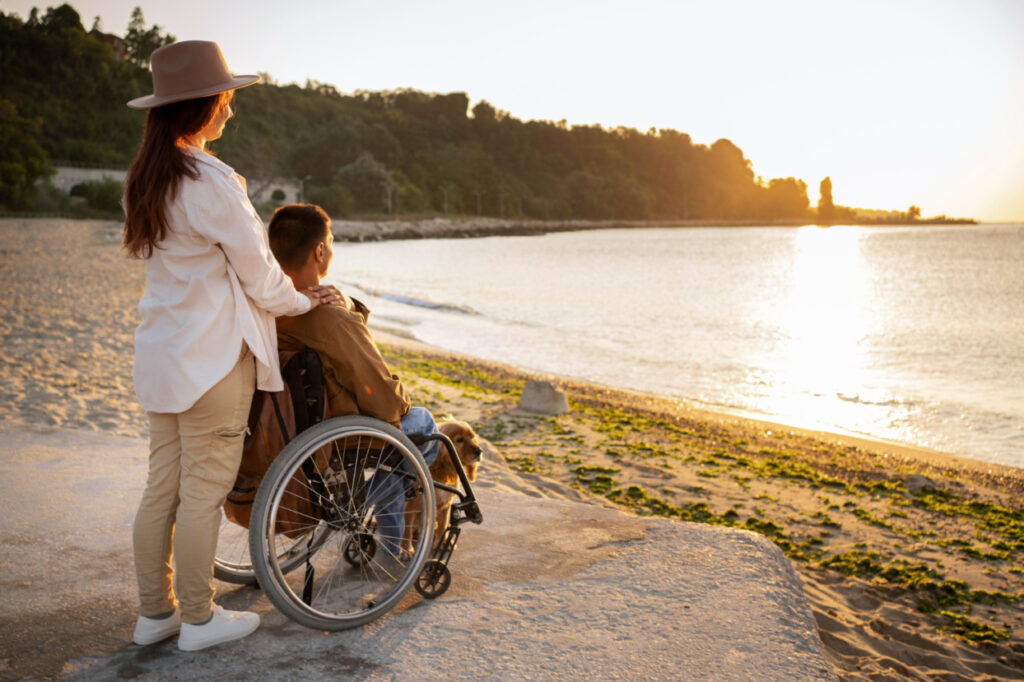16 Warning Signs and Risk Factors for Elder Abuse
As we age, support and care for elders is usually placed in the hands of family members or aged care providers. Many caregivers are diligent and serve their patients with dignity and respect however, elder abuse is a growing concern. Not always common knowledge, elder abuse can also occur at the hands of family members. This often goes unreported by the elderly, due to feelings of shame or the potential repercussions it could have on their family circle
It’s essential that both family members and aged care providers are always on the lookout for signs of potential elder abuse. In this article, we list 16 signs that could be a potential indicator that aged care abuse is taking place, as well as qualities to keep in mind when searching for a new aged care provider in the future.
Warning Signs Of Aged Care Abuse
Elder abuse is any act that causes mistreatment, neglect, or other harm to an older person. According to the Australian Institute of Family Studies, This abuse can take many forms, including physical, psychological, social, financial, neglect, and even sexual. Aged care abuse is typically performed by someone close to the victim. This person may be a family member or an unrelated part of the care team.
Moreover, it is likely that between 2% to 14% of elder people are prey to abuse in Australia, and in most cases, people often are unable to judge it quicky.
Here are some common signs that elder abuse is taking place:
Physical Abuse
- Any physical injuries including bruises, scrapes, sprains, or broken bones
- Making up unlikely stories to explain injuries
Neglect
- Unexplained weight loss
- Poor hygiene
- Unsafe or dirty living spaces
- Medical devices that are lost, misplaced or broken
Psychological and Social Abuse
- Cancelling social plans
- Confusion, anxiety, depression, or fear
- Losing contact with loved ones
- Feeling afraid or unable to talk honestly
Financial Abuse
- Charges to a bank card or account the victim doesn’t recognize
- Loss of access to the elder’s own money
- Caregiver demands additional gifts or money outside of the established arrangement
Sexual Abuse
- Developing a sexually transmitted disease (STD)
- Bruises or injuries on thighs or genitals
- Caregiver watches explicit videos near the victim, even if no direct contact is made
What Are Risk Factors For Aged Care Abuse?
Predicting elder abuse can be challenging and our aging population can seem like an easy target for abusive or exploitative people. After living productive, independent lives, many elders feel ashamed to alert their loved ones of potential instances of abuse and may be reluctant to report the actions. If the abusive party is a family member or other loved one, the victim may hesitate to do anything that might threaten the relationship.
Additionally, some forms of elder abuse can be hard to distinguish from a more standard aging process. Seniors struggling with a loss of balance and mobility may have legitimate accidents that resemble physical abuse. Dementia and other cognitive issues can cause confusion, anxiety, fear, and other symptoms that overlap with signs of psychological abuse.
Since it can be hard to identify elder abuse, it’s vital for family members and loved ones to know the risk factors as elder abuse can happen to anyone. The following are instances or situations where people are more likely to see aged care abuse.
Age
Elder care abuse is more likely to happen to adults 80 years or older. Children and family members should aim to become more involved in the care process as their loved one ages.
Gender
Women are more likely to suffer from aged care abuse than men. Additionally, women are more likely than men to have been in an abusive situation earlier in their lives. Patterns of abuse can continue into the elder years, or previous abusers can reappear as a woman ages.
Social Support
Elders who live alone and have few social ties are more likely to be abused than older adults with a robust network of friends and family.
Health
Physical, mental, and emotional conditions all increase the odds that an elder will be abused. People living with cognitive issues such as dementia are especially at risk.
Caregiver
Some demographics may be more likely to commit elder abuse or neglect. If a caregiver lives with their victim or is dependent on the senior for financial support, abuse is more likely. Caregivers with a history of drug use or a criminal background can also pose an additional risk.
Level Of Care
It’s important for families to monitor the level of treatment and care their loved one needs. Imagine a person who entered the elder care process for assistance with basic housework, light cooking, and occasional errands. If their needs progressed but their level of care did not, this person would be at risk for neglect and possibly other types of abuse.
Family History
Many families feel that relatives provide the best elder care, but abuse and neglect can often be exhibited from those who are closest to them. Family caregivers may not have the appropriate training, resources or time a certified NDIS provider has so there are instances where frustrations may be taken out on elders. A history of family violence, including elders who were previously abusive towards their present caregiver, can lead to elder abuse as well.
Choosing A New Aged Care Provider
If you suspect your parent or other loved one is struggling with elder abuse, it’s vital to find a new aged care provider. Here are qualities to look for during your search.
Licenses And Training
Confirm the training, background, licenses, and professional history of any potential care provider.
Personality
Cultural or personal conflicts can lead to elder abuse over time. If a caregiver is going to be a constant presence in your loved one’s life, it’s ideal to find a provider who gets along well with your family member.
Proper References
Check into any provider’s references to learn more about their work style, bedside manner, and history. If you’re considering a residential or full-day facility, make several visits at different times of day to get a well-rounded opinion. Talk to other residents and their family members without staff present to learn about their experience. If the care provider will be coming to your home, ask for professional references from doctors or other respected experts, in addition to previous clients.










